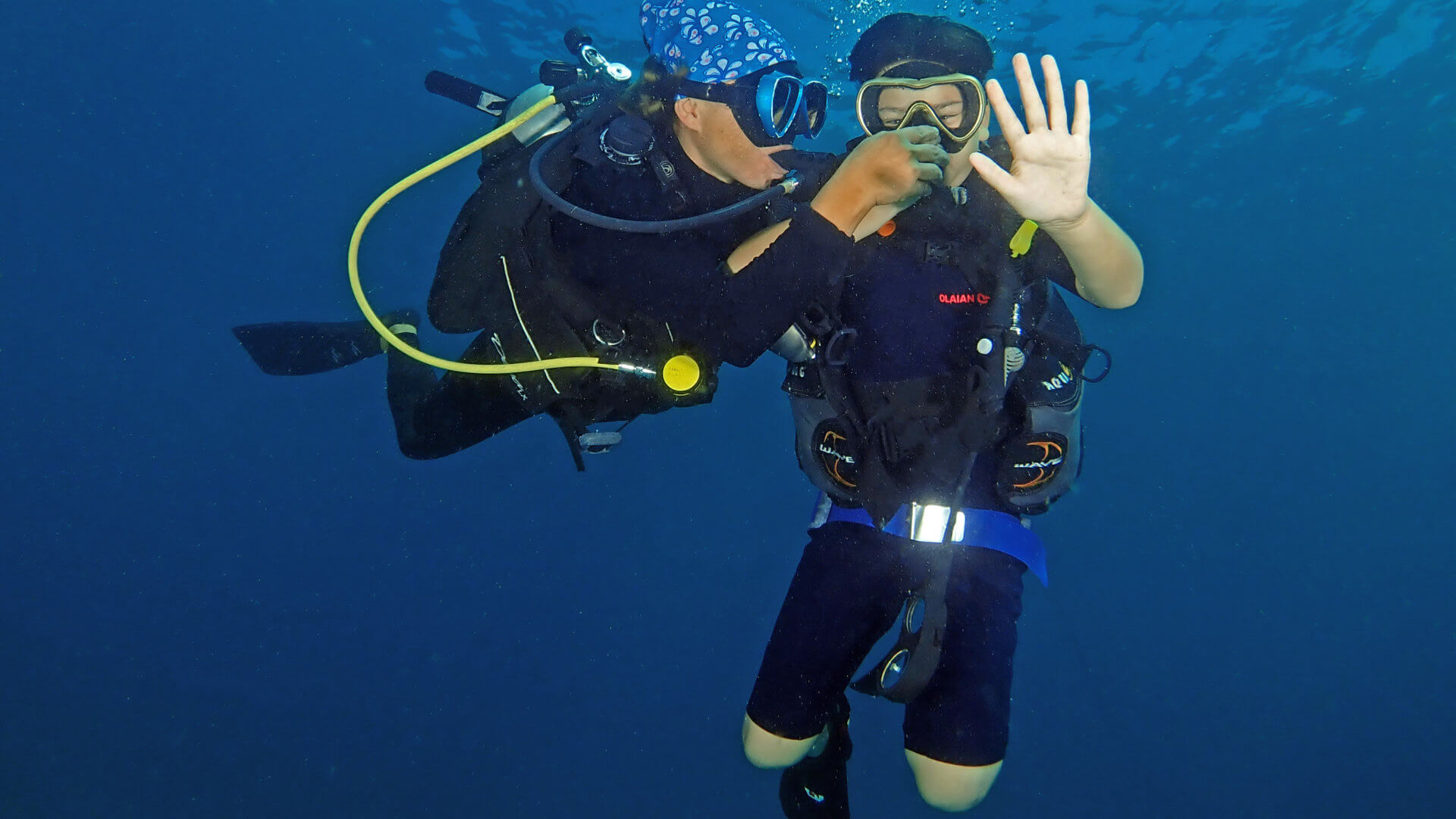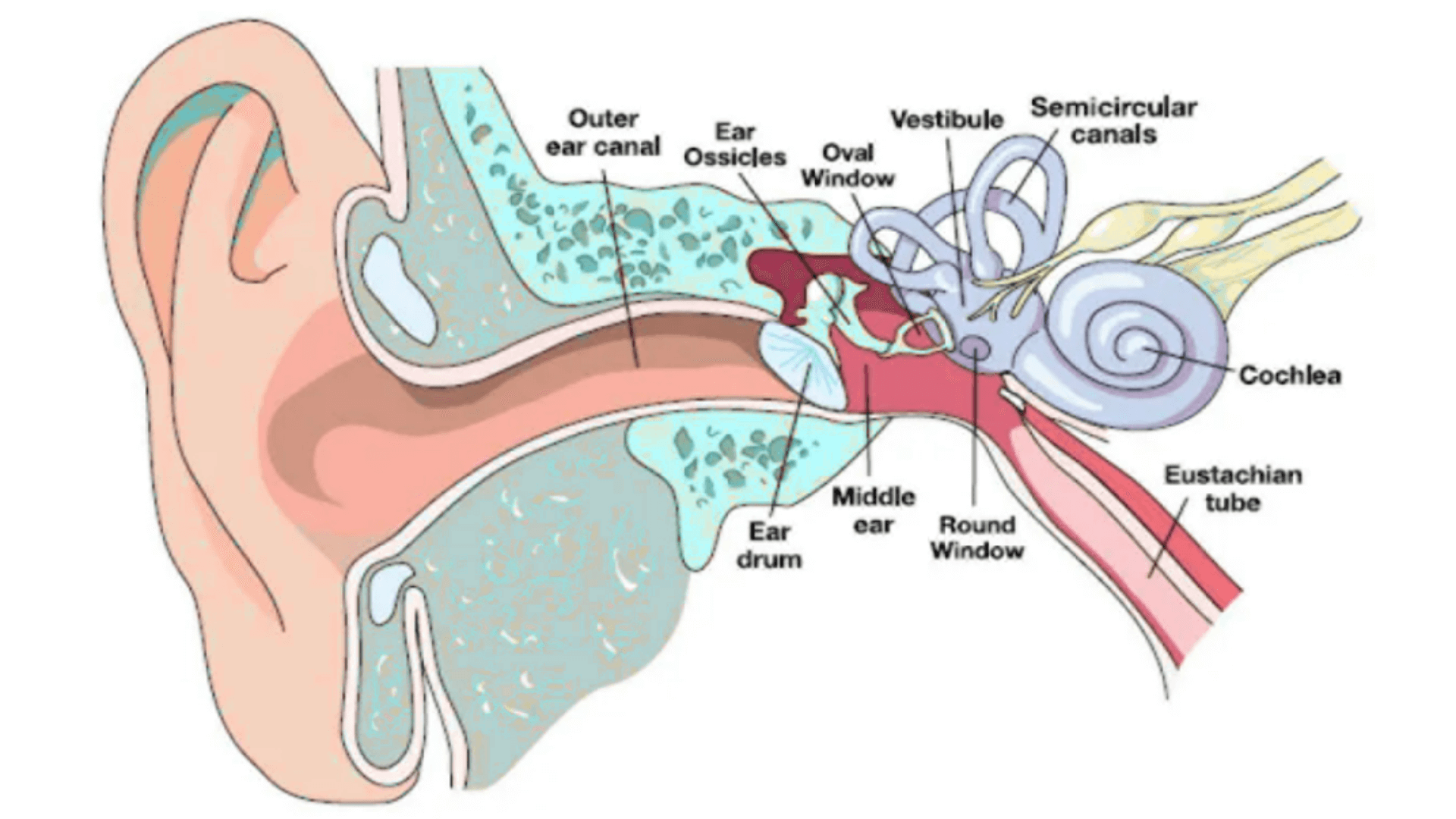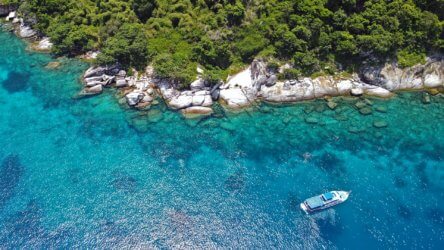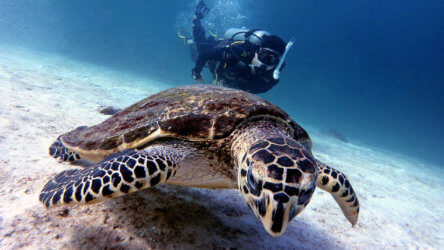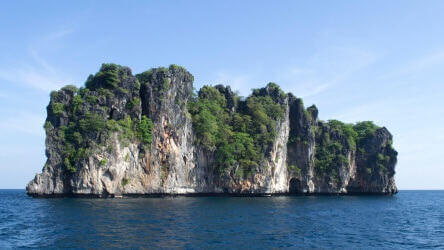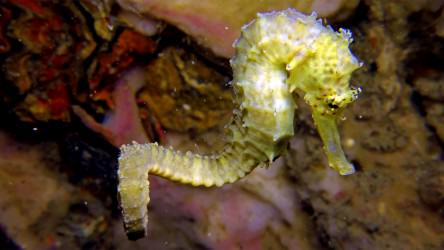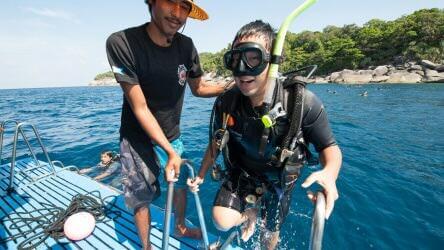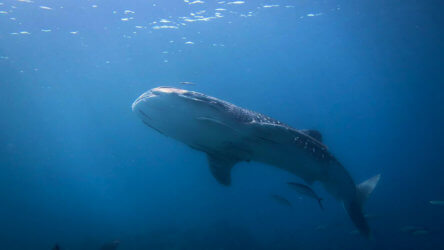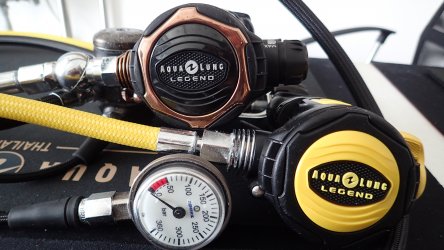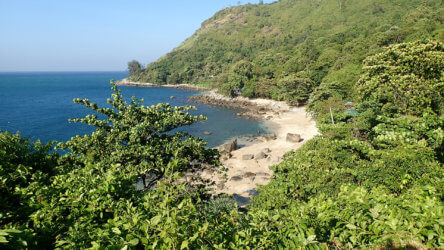Pressure Will Affect Your Ears When Scuba Diving
Will scuba diving hurt my ears? is a question we frequently get asked. Anybody who’s tried diving down when snorkeling will have felt the effect of pressure on their ears. So it’s natural to assume it will only get worse when going deeper. That assumption would be 100% correct so that’s why you’re taught simple techniques to prevent pain or damage as part of the PADI Open Water Course. The techniques will quickly become habit and ear issues will become a rare and easily remedied event.
Why Can Scuba Diving Hurt My Ears?
The pressure increase is much greater and faster than what our ears are designed to handle in everyday life. As you descend, pressure increases on your outer ear. Your middle ear is sealed from the outside world so the outer ear drum is forced inwards buy the greater pressure. The stretching of the eardrum and stress on the middle ear is what causes the discomfort.
What Can I do About it?
The first step is making sure you have a slow descent, correct weighting is essential. If this is something you struggle with then think about the PADI Peak Performance Buoyancy specialty. If you slowly descend then any discomfort you feel will be a gradual sensation rather than a sudden pain. On all entry level courses, it’s a standard to use a descent line. This enables you to control your descent even if you haven’t quite grasped neutral buoyancy.
From your very first PADI dive experience you will be shown correct equalisation techniques. Following these techniques will in most circumstances prevent any discomfort being felt.
So How Do I Equalise?
Pinching your nose and gently blowing will equalise the air pressure in your middle ear. Early and often is the mantra we teach. You can’t equalise to often but if you wait until you feel discomfort and blow to hard then you could bruise your eardrum. Swallowing is another technique. However with the dry air we use in scuba diving, this can sometimes be difficult. If your struggling to clear then a combination of the both may work. Moving the jaw from side to side and lifting your chin may also assist.
If you still can’t equalise then swim up slowly half a metre or to reduce pressure and try again. Remember to equalise more often as you descend again to make sure the same issue doesn’t arise.
Always That Easy?
Not always, mitigating factors can affect equalisation. Some of us have narrow eustachian tubes which makes equalising more difficult. In that case you will have to learn how to manage your descents and always make sure you inform your divemaster/instructor and of course buddy.
If you dive with a cold or congestion which is something you really shouldn’t do then you may find it extremely difficult or even impossible to equalise your air spaces.
What About Ascents?
All being normal then ascents should be no issue at all. You don’t need to do anything. You’re ascent should always be slow and expanding air will work it’s way out naturally. If you’ve gone against general advice and dived with any type of congestion then you could experience a reverse block.
It’s obviously the opposite to what’s happening on the way down. Expanding air can’t escape and puts pressure on your ears. The only thing you can do is descend slightly and then ascend extremely slowly, the trapped air will eventually work its way out.
As long as you practice slow descents, equalise early and often and don’t dive with a cold, congestion or suffering or recently recovered from an ear infection then all should be fine. Happy Diving!
Posted in Scuba Diving Health on .
